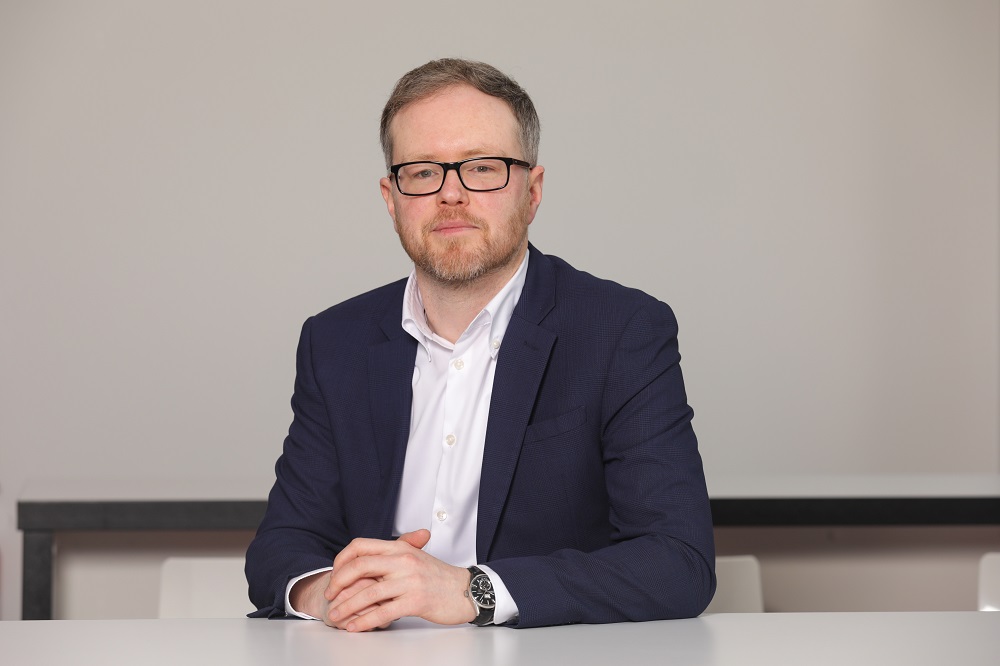Michael McNally lives in Heswall on the Wirral and is an associate partner in Pannone’s employment team. In this instalment of My Life in Law, he tells us about his 17-year career in law and what’s changed in the industry during that time.
What was your experience prior to joining Pannone?
I qualified in 2006 and have always specialised in employment law, even spending some time before qualification working as an employment law advisor. Before joining Pannone in September 2020, I worked at Hill Dickinson and Freeths.
I’ve always worked in commercial employment law advising employers and have particular experience working with clients in care, retail, transport and logistics, leisure and retail, and manufacturing. I’m also an experienced employment tribunal advocate.
What’s your current role and why did you join Pannone?
I joined as a Director and became an Associate Partner last year. The firm has a great reputation, both for the quality of its work and culture. Having worked here for a couple of years, I’ve not been disappointed in either regard.
What route did you go down, in terms of training and qualifications?
The standard route for my generation of law at university, LPC in the Chester College of Law, followed by a training contract. I did approach things a little differently though and did my training contract in local government at Chester City Council, as it was then.
Why did you choose this route?
I wouldn’t say I chose it, as such – it just seemed the most obvious way of becoming a solicitor at the time. With hindsight, I appreciate you don’t need to do a law degree at university to become a lawyer. If I had my time over again, I would have done a non-law degree and then the conversion course before the LPC.
What is the most satisfying aspect of your job?
Understanding what the client wants to achieve and then helping them to achieve it. I enjoy the technical side of the law, but working with the client is the most satisfying part of the job.
What does a typical day look like?
There isn’t one! The best thing about being an employment lawyer is the variety.
A day could include drafting an article first thing, then working with the corporate team on a transaction. After lunch, there could be a preliminary hearing in the employment tribunal by video and, later in the day, I could be on a call with a client’s HR Director and CEO discussing a re-organisation.
If you were managing partner for the day, what’s the first thing you would do?
Give myself a long-term contract in the role, as I’m not going to get much done in a day!
What would you be doing if you didn’t have a career in law?
My original reason for going into law was because I thought it would be a good way of becoming a football agent, so maybe I’d have ended up doing something like that! Although, to be honest, it’s not a job I would want now, but when I was 15 it seemed like a great career!
What can the legal profession do to better support clients? Does anything need to change?
I have been lucky enough to work at firms and with lawyers who I think do a very good job of supporting clients. The focus should always be on providing the client with responsive commercial advice.
Going forward, I think law firms will need to offer a wider range of business services than they do now – similar to how many accountancy firms will offer other services (including legal support in some cases). The profession is also going to need to adjust to the changes that technology will bring, particularly in respect of AI.
What do you enjoy doing outside of work?
Being a Liverpool season ticket holder; I enjoy going to regular Champions League finals!
Do you have any particular skills/talents that your work colleagues may not know about?
This is more of a talent that I wish I had, but I went through a phase a few years ago of tinkering with watches. I still aspire to assemble my own watch one day – making one may be beyond me!

